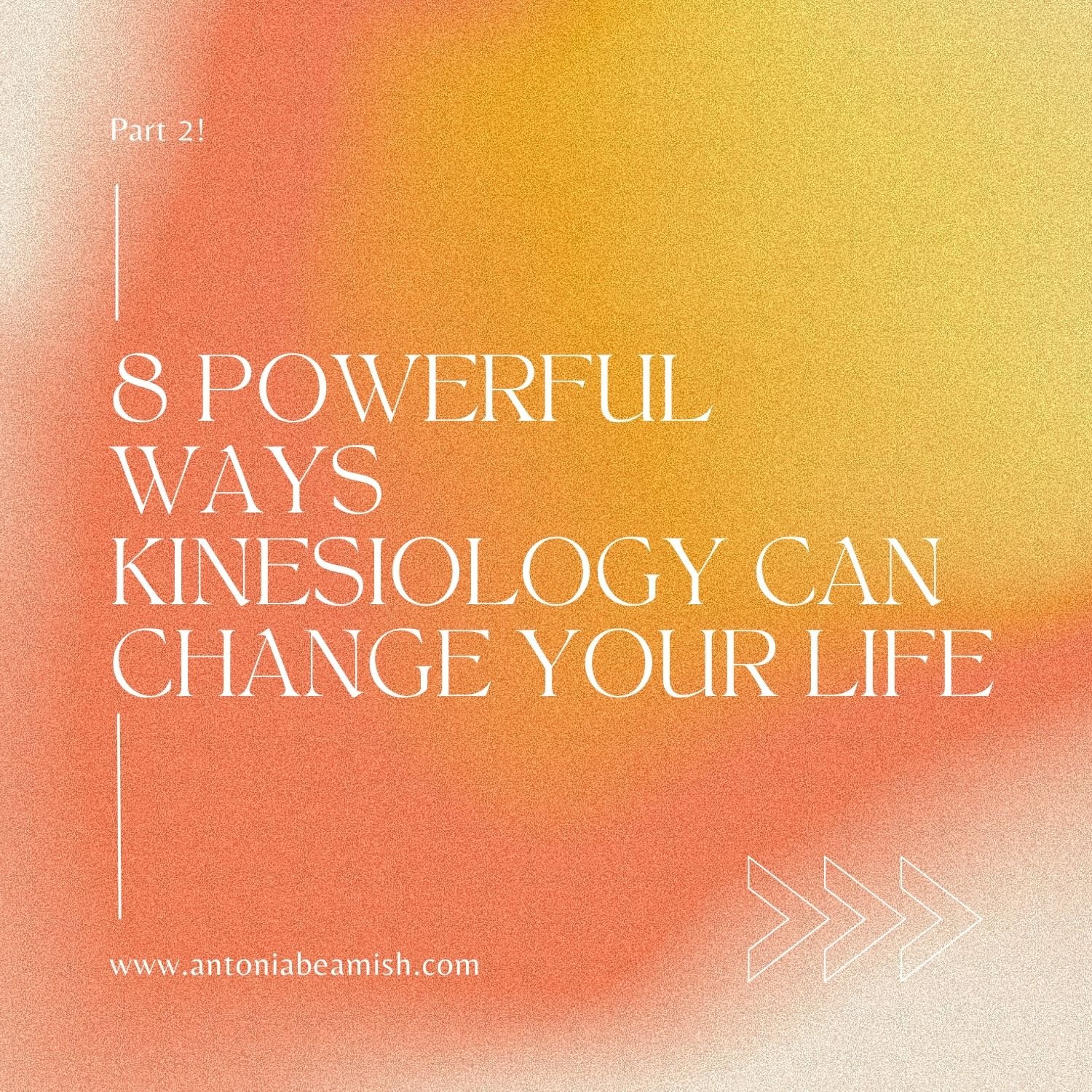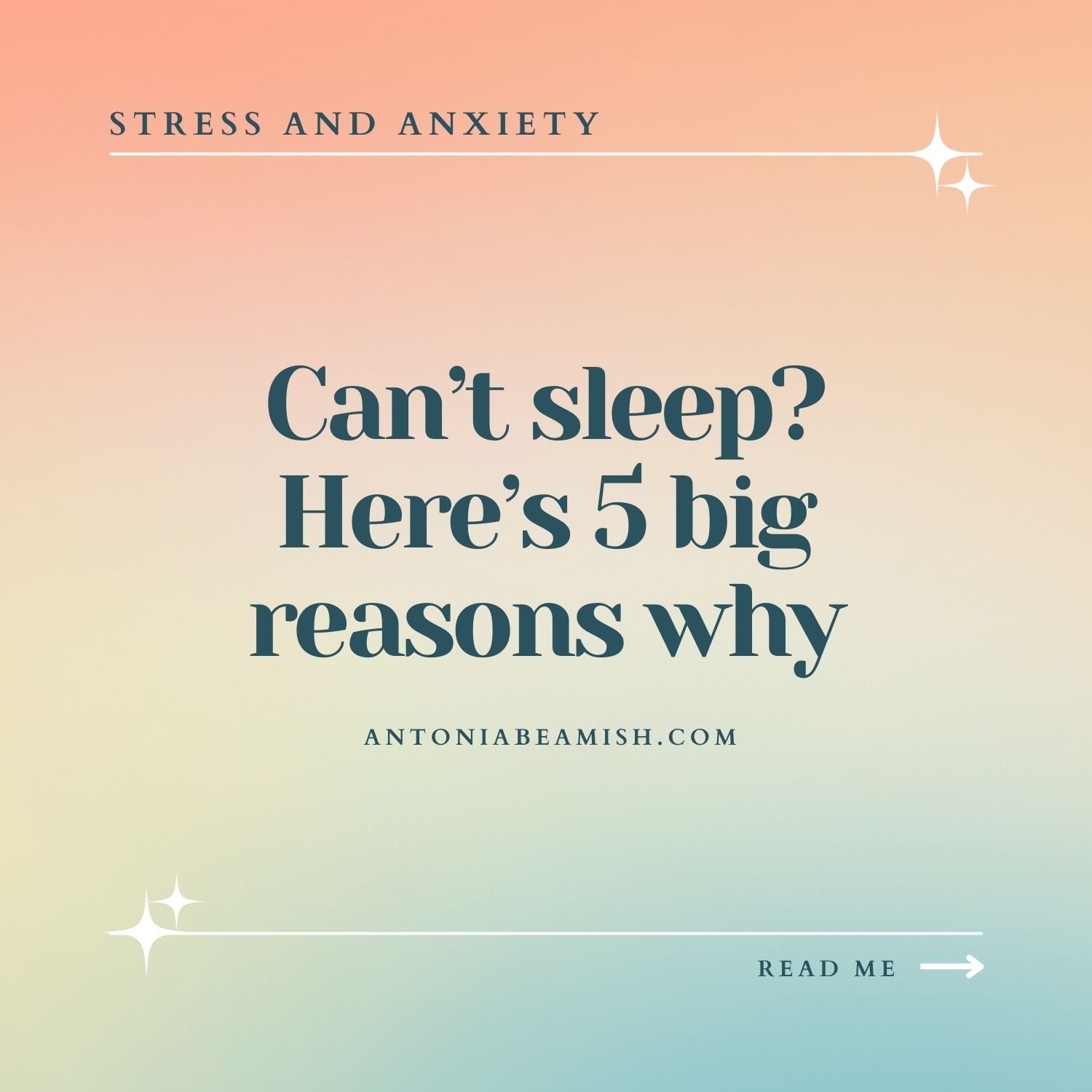3 powerful ways Kinesiology supports your wellbeing
I had never heard of Kinesiology, until it changed my life.
While other complementary therapies are well recognised by the mainstream audience, Kinesiology has fallen by the wayside and is still sitting on the benches, rather than playing on the main field.
Which is why I want to share how incredibly powerful this therapy is, not just because it changed my life, but because it has such a deep impact on everyone who experiences it.
If you’re curious, read on, and I’ll share exactly what Kinesiology is and three powerful ways it can support your wellbeing.
What is Kinesiology in a nutshell?
Often, people don’t care how a therapy works, they just want to know how it will help them, so I’ll keep this brief.
There are a few branches of Kinesiology but Systematic Kinesiology, the major branch in the UK, was born out of the chiropractic development of Applied Kinesiology, along with Chinese energy medicine.
What makes Kinesiology so incredibly unique is how it addresses and balances the four aspects of a person simultaneously; the mental body, the chemical body, the structural body and the energetic body, to find and treat the root cause of symptoms.
Symptoms are a sign that there’s an underlying imbalance the body wants us to pay attention to, but rather than guess where the root cause of symptoms originate, we use muscle testing to ask the body what it needs to restore balance and harmony.
In a nutshell, Kinesiology reads the language of your body, tapping into your energy field to communicate with your subconscious to understand the root cause of your symptoms, which is what makes Systematic Kinesiology so powerful.
Using a variety of techniques, such as lymphatic massage, nutritional testing, energy work and emotional stress relief, we help the body correct these imbalances to bring you back to health.
Kinesiology tells you exactly what you need
We’ve all been there; we’ve walked into a health store and surveyed the vast array of nutritional supplements on offer and panicked about what to pick from the huge choice available.
The supplement market is incredibly saturated and deeply overwhelming for anyone who knows they need extra nutritional support but aren’t sure what exactly they need.
This is where Kinesiology can really take the spotlight.
Using muscle testing we can read your body and ask what specific supplement it needs to restore balance, increase energy, ease anxious thoughts, support sleep, decrease pain and inflammation, or whatever you’re experiencing.
Everything is energy and in Kinesiology we know that when we place a supplement in your energy field your body will tell us whether it needs it or not. Going deeper, we can also tell what is a priority for the body when it’s severely imbalanced and needs lots of different nutritional support.
It might be that you don’t need a B12 for energy, but you need B5. It could be that you need Vitamin A rather than Vitamin C to support your immune system. Perhaps it’s actually Hops and Valerian you need, rather than Magnesium, to help you sleep.
Without testing, we just don’t know, so why guess?
Kinesiology takes out all the guesswork, using muscle testing, and tells you exactly what your body is asking for.
Kinesiology unburdens you of pain and stress
Often, there’s more to physical aches that we see on the surface.
The mind and body are one unit so emotional stress can often leach into the body. In particular, we feel the weight of worry in our neck and shoulders, which is why, after a Kinesiology session, pain and tension here disappears.
When we carry worries, anxious thoughts and stress around in our heads, we only need to let it out to feel deep relief. We’re not therapists but we listen, helping you to untangle the chaos in your mind.
Usually, once clients start to talk, they find that they can’t stop because it’s the first time they’ve really been able to understand what’s at the root of their stress, and release it.
Emotional stress can be a very heavy burden to carry, so our job, as Kinesiologists, is to gently lift this off you to reset your nervous system back into its natural parasympathetic state. Once we unwind you from a state of stress it’s amazing how clarity, understanding and perspective rush in to fill the space.
Any pain, stress and tension in the body are also rebalanced using a variety of powerful techniques. In particular, stimulating the lymph through massage is a powerful way to ease tension and pain.
Kinesiology helps you understand yourself
Often, we aren’t aware how our emotional state affects our physical wellbeing. However, science is beginning to catch up.
Through the study of psychoneuroimmunology we are beginning to understand how our thoughts impact our immune function. In Kinesiology, however, we know that our thoughts impact every function in the body.
This isn’t a new way of thinking, it goes back thousands of years to the roots of Traditional Chinese Medicine. Using this modality we can see how certain emotions impact specific areas in our body. For example, grief sits in the lungs, anger resides in the liver, lack of joy is held in the heart and lack of validation is centred in the stomach.
Another way Kinesiology helps us to understand ourselves is through exploring how our deep subconscious beliefs, often programmed in childhood, affect the way we behave now.
In Kinesiology we aim to unroot these subconscious belief systems that are leaving us stuck in a cycle, whether it’s addiction, lack of confidence, repetitive behaviour or something else.
Once you understand what drives your behaviour, you become free to live as you choose, without the constraints of old subconscious programming holding you back in life.
Want to receive the latest blog posts straight to your inbox? Sign up for my newsletter and you’ll also receive your FREE ‘Discover Your Fear Saboteur’ guide, the ultimate guide to identifying the fear sabotaging your potential!




























